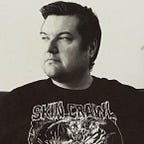HOLDING AUDITIONS — Filmmaking Advice
A Chapter selection from the Bridgeport Film Club Guidebook
In the previous Chapter selection, we talked about scheduling actors for your film project audition.
Earlier in this chapter, we talked at what we look for in an actor audition. This section will talk about how we run an audition.
Auditions are usually scheduled in the evening during the week and sometimes on the weekend. All of us have regular jobs during the day and a lot of the actors we see have regular employment as well.
We usually rent out theater space and a couple times have gone to the Chicago Park District to book a room. We arrive half an hour before the first audition is scheduled. There’s usually one or two actors who show up ahead of time, so it’s important to be at least a half an hour early so you can set up. We post signage for the audition with the company name.
Inside the audition room, we set up a table with chairs for the director, producer, and anyone else in the crew who needs to be there. We keep a schedule of who’s supposed to show up, extra pens, and a laptop so we can look at headshots / resumes.
We also set up a video camera and audio equipment so we can record the auditions.
I keep old auditions saved so if I’m looking to fill a particular role, I can look back at my old audition tapes.
During the audition we have someone monitor the auditions. The audition monitor makes sure everyone signs in, they take their headshot / resume, and they give them a scheduling form to fill out. The audition monitor coordinates with the director or whoever is running the auditions to make sure actors are given the time they deserve and that the schedule is maintained. Because we have everyone sign in, we also keep an eye on the schedule and when actor’s actually arrived so that no one is waiting to audition longer than twenty or thirty minutes. And this kind of wait would likely be because the actor arrived extra early for their audition time. When the scheduling forms are filled out, the audition monitor turns them into the casting table with the headshot / resumes. And when they are ready, the audition monitor brings in the first audition.
We typically ask a couple get to know you questions, and looking at the resumes ask about previous work. Then we roll camera and sound and have the actor say their name to camera before delivering their monologue.
In a previous section, I went into detail about what we look for in an audition. I look for how connected the actor seems to be to their emotions (does what they are saying read true), how close they are to my image of the character, and lastly how they deal with the pressure of auditioning. A couple of times I’ve seen actors break in the middle of a monologue. I’m not really interested in how well they’ve learned their lines, it’s more important to me what emotions they convey during the monologue.
The audition starts when they arrive and sign in for the audition. We ask the audition monitor to take notes on how the actors approach them. If someone was mean to our audition monitor, we would want to know (this very rarely happens).
During the conversation before the monologue, I’m reading the actor for how connected they seem to be and how close they seem to be the character I’m casting. Sometimes I’ll see a really good actor, but they won’t be a good fit for the character. I always take note for roles that may come up later.
After they deliver their monologue, we might ask an actor to perform part of the monologue again with direction, or we might cut them loose. We’ll request a second take if the actor is close to what we have in mind and we want to see how they take direction. We’ll also request a second take if something with the audition wasn’t working, and we want to give them a second chance with direction.
When we’ve seen what we’ve needed to see and we’ve taken notes on the audition, we might ask a couple of follow up questions. We will thank them for coming out and then we will see the next audition.
Holding an audition is the first chance for an actor to meet you and get a sense for what you want to do as a filmmaker. We always work to make sure anyone auditioning for us has a positive experience. If we really liked an audition we will sometimes tell the actor, whether we intend to cast them or not.
Call to Action
Thank you for reading this far! If this article was helpful or interesting, please share it.
Next on Deck!
We’ve posted a new short film, you can check it out at: Pooh Bear Bong
We’ve realeased our web series Squarehead! Check it out at: vimeo.com/bridgeportfilmclub
Next week we will talk about Audition Call Backs.
Check out the previous chapter section: SCHEDULING ACTORS — Filmmaking Advice
Like our Facebook page: https://www.facebook.com/bridgeportfilmclub/
